#rewiring your brain
Text
I’m always always teetering on the question of whether to accept a certain behavior from a friend as acceptable or not because I want to maintain the peace and “good times” with that person. It is so incredibly hard… and over time, I realize that I have so much built up resentment because I pushed MY feelings away just so we could have a friendship.
In the past, I just didn’t know in a way - I didn’t know what was an automatic “okay this really hurt me and we need to have way more boundaries for my own safety or peace of mind” or “okay this is clearly a mistake and not a pattern… and we can work through this.”
I am figuring out the thresholds and the nuance.
One of my long-term acquaintances/friends from undergrad told me a couple months ago that I shouldn’t be afraid to call out people for being assholes, even if they don’t realize it.
Sigh - I never thought I’d be one of those people who would complain about their exes and ex-friends in this manner… but I think I’m finally centering myself and acknowledging that what a lot of people in my life did WAS FUCKED UP. That our past hurt and trauma DOES NOT EXCUSE BAD BEHAVIOR. That I myself have exhibited bad behavior and I can acknowledge that I too was an asshole and learn from it (so why can’t others?? Especially if they want to be in my life).
Sigh, lessons you internalize in your thirties I guess.
#healing#trauma#neurodivergence#codependent no more#codependency#fawning#people pleasing#autism#ptsd#survival mechanisms#rewiring your brain#actually having standards#self love#harm reduction#love#heartbreak
7 notes
·
View notes
Text
There is growing evidence that simple, everyday changes to our lives can alter our brains and change how they work. Melissa Hogenboom put herself into a scanner to find out.
"It's surprisingly hard to think of nothing at all", is one of my first thoughts as I'm lying in the maw of a machine that is scanning my brain. I was told to focus on a black cross while the functional Magnetic Resonance Imagine (fMRI) machine does its noisy work. It also feels impossible to keep my eyes open. The hum of the scanner is somewhat hypnotic, and I worry a little bit that drifting off will affect how my brain appears on the resulting images.
As a science journalist I've always been fascinated by the workings of the mind, which is how I found myself inside a scanner at Royal Holloway, University of London, to have my brain examined before embarking on a six-week brain-altering course.

Simple mindfulness exercises can help keep our minds healthy, research shows (Credit: BBC)
Our brain has an incredible ability to adapt, learn and grow because by its nature, it is plastic – that is, it changes. This is called neuroplasticity, which simply means the brain's ability to adapt and evolve over time in structure and function. It was once thought to be limited to youth but we now know it's a constant force in shaping who we are. Every time we learn a new skill, our brain adapts.
Neuroscientists and psychologists are now finding that we have the power to control that to some extent. And there's good reason to want to boost our brain – an increasing number of studies suggest it can play a role in delaying or preventing degenerative brain diseases.
So, with the help of Thorsten Barnhofer, a professor of clinical psychology at the University of Surrey in the UK, that's what I set out to do. He's currently running a study on the effects of mindfulness in managing stress and difficult emotions, with a special focus on individuals with severe depression.
I was surprised that something as simple as mindfulness can play such a crucial role in keeping our minds healthy. Research has shown that mindfulness is a simple but powerful way to enhance several cognitive functions. It can improve attention, relieve pain and reduce stress. Research has found that after only a few months of mindfulness training, certain depression and anxiety symptoms can ease – though as with any complex mental health problem, this may of course vary depending on individual circumstances.
There's more to it. Mindfulness can change the brain. That's because when the stress hormone cortisol increases and remains high, "it can become toxic for your brain", says Barnhofer. Stress can also directly inhibit neuroplasticity, so managing it allows the brain to remain more plastic.
The question is, would this work in my brain? Over six weeks, Barnhofer modified a mindfulness research course for me to try out. For 30 minutes a day, either as one single session or two 15-minute sessions, I practiced a guided mindfulness meditation by listening to a recording. In addition, I had one weekly meditation session with Barnhofer, who guided me over Zoom. The full mindfulness course can be accessed online for free.
My instructions were to be as aware as possible to the present moment – and pay attention to things I might usually ignore, such as where my thoughts go, and what occupies my mind from moment to moment. He also encouraged me to be more mindful in daily life – say when cooking or running, to really focus on the moment, bringing my mind back to what I was doing, as well as noticing how often it wanders.
One simple mindfulness technique involves focusing on one's breath
What's fascinating about this area of research is that mindfulness, which appears to be such a simple process, can have a measurable effect. "What mindfulness does is it can buffer stress, you become aware of challenges and those more ruminative responses, a tendency to worry," explains Barnhofer.
While I'm perhaps not an ideal candidate – my stress levels, which were measured before and after the process, are generally low – I still felt a benefit. As soon as I started a session, it felt like the first minute or two were easy. I would focus on my breath, or parts of my body as instructed. But at any moment of silence I would find my mind going on time-travelling journeys. I'd think about a conversation with a friend from weeks ago, then flit within seconds to thinking about scheduling a dentist appointment, then next about an upcoming work deadline… and so on. In quick succession, I could see just how rapidly my mind shifted from thought to thought. Speed this up and it can become extremely exhausting.
"Mind wandering is something that of course might be helpful in many ways," says Barnhofer. "It might help us with creativity, but it's also something that can go awry. And this is where repetitive thinking comes in, where ruminative thinking comes in, where worry comes in. And those are the factors which increase stress once it's there."
When I started to notice this, it made more sense that this brilliant ability we all have to think ahead, to plan, to worry, can be debilitating if it goes into overdrive. In other words, revealing the workings of our own mind is a crucial first step of letting go of some of that busyness.

Thorsten Barnhofer, a professor of clinical psychology, explains how mindfulness can shape the brain (Credit: BBC)
For instance, evidence shows that both meditation and exercise boost plasticity. I didn't increase my normal levels of exercise, but I did to push myself to run faster – regularly running a 5k in my hilly local park in about 21 minutes. Knowing that this might help boost my brain too, kept me motivated. "Physical activity facilitates the procedure of plasticity," says Ori Ossmy, a lecturer in brain and cognitive development at Birkbeck, University of London in the UK. "If you combine it with cognitive tasks to improve skills you are interested in, you probably will be able to do this in an enhanced way."
This makes sense given how closely the health of our bodies and our brains are tied together, agrees Gillian Forrester, professor of comparative cognition at the University of Sussex in the UK. "Our physical health and mental health are absolutely tangled up together to create a quality of life," she says.
Physical health is tied to cognitive health, too. It's by studying infants that scientists like Forrester are learning to see the brain/body link in action.
In Birkbeck University's brand-new Baby Lab, Forrester showed me her latest project called Baby Grow. The study will monitor babies' development in their first 18 months, with the aim of spotting signs of cognitive disorders before they become apparent. And the reason it's crucial to do it so early? It's tied to neuroplasticity too. A child's brain is especially plastic in its early years of development – new neurological connections and networks are being created at a frenetic pace as they grow and learn about their environment. This means it's potentially much easier to apply interventions for those who need it during this highly plastic state. This is one of the reasons why Forrester believes it is so important to learn more about everyday processes that help mould the brain.
The same idea also comes into play when patients are recovering from serious brain injuries. I met with Angelo Quartarone, the scientific director of the Centro Neurolesi Bonino Pulejo, a centre for brain injuries in Sicily. He witnesses plasticity in action every day. "Even in the worst conditions the brain helps to repair itself in some way… With neurorehabilitation we can accelerate recovery," he says. His team uses varied methods of assisting rehabilitation, including robotics, virtual reality, and placing electrical currents on the brain. "A tiny amount of currents can interact with the same mechanisms which are engaged by neurorehabilitation techniques," he says. "So you have a double hit."
I was amazed to learn that one of his patients, who had lost power in their right limbs, was able to forge new neural connections by playing simulated computer games. This helped them to regain lost motor skills.

Learning a new skill – in this case, how to play a tambourine – is fun and helps the brain to continue to grow (Credit: BBC)
At the end of the six weeks, I was extremely curious to see if all this work had any effect on my brain. After another brain scan, and some trepidation about what might have happened inside my head in the intervening weeks, I visited Barnhofer at the University of Surrey to find out. He had been analysing and comparing my two brain scans long into the night.
There was a result: the structure of my brain had in fact changed. And there were a few measurable changes to be seen.
One half of my amygdala – an almond-shaped structure important for emotional processing – had reduced in volume on the right side. The change was minute but measurable. However, what's exciting is that this aligns with the scientific literature that shows mindfulness can reduce its size because it buffers stress seen in the amygdala. When we experience increased stress, the amygdala grows. I didn't feel particularly stressed to begin with, but even so, it was exciting to still see a change.
The other change was to my cingulate cortex, part of the limbic system that is involved in our behavioural and emotional resonses. It is also important for the default mode network, a region that becomes active when the mind wanders and ruminates. In my brain, it had slightly increased in size over the six weeks, indicating increased control of that area. Again, this chimes with published studies in the scientific literature.
It also resonates with what I had noticed during my sessions. Over time I found I was able to keep my mind more restful – I was better able to zone out busy thoughts.
It was quite, if you will excuse the pun, mind-bending to see these results to my brain on a big screen in front of me. Just by being mindful, I had managed to increase a part of my brain that prevents my mind wandering too much.
A final note of caution – it is important to acknowledge that any brain changes we had seen could also be random. The brain is constantly changing anyway. But nevertheless, the studies suggest that the whole experience was a worthwhile challenge – and a process many people could easily benefit from.
Of course, for the changes to be long lasting, it's clear I should keep pushing myself to do some of these "hacks".
Am I going to continue meditate every day? I'd really love to say: "Yes of course." That is, if life doesn't get in the way
#brain chemicals#brain science#rewiring#rewiring your brain#brain#How I rewired my brain in six weeks
4 notes
·
View notes
Text
Science Meets Spirituality: Unveiling the Benefits of Joe Dispenza Meditation
Table of ContentsWhat Is Joe Dispenza’s Meditation?Rewiring Your Reality with Joe Dispenza’s MeditationSome of the meditation types offered by Joe Dispenza include:1- Meditations for Breaking the Habit of Being Yourself:2- Guided Visualizations:3- Breathwork Meditations:Embarking on Your Journey: Starting Your Joe Dispenza Meditation Practice1- Explore Joe Dispenza’s Work:2- Choose Your…

View On WordPress
#breaking the habit of being yourself#epigenetics#joe dispenza#joe dispenza meditation#joe dispenza retreat#meditation#meditation for abundance#meditation for healing#mindfulness#neuroplasticity#personal growth#rewiring your brain#self-improvement#stress reduction#the placebo effect#well-being#you are the placebo
1 note
·
View note
Text

⸢This story is for just that one reader.⸥
#im in my yoohankim feels nobody talk to me#asked the squad what kind of sky suited these bitched and they were like “dusk” and i was like “fuck yeah i love that”#but holy shit orv rewired the circuits in my brain especially these three and their sun moon star motif#i could ramble about them forever but aye I'll shut up now#i will never be getting over this novel#feel free to use the wallpaper for your phone just don't repost it or claim it is yours pls thank#yoohankim#orv#yoo joonghyuk#kim dokja#han sooyoung#doksoo#joongdok#joongsoo#myart#anime art#anime fanart#artists on tumblr#digital art#omniscient reader's viewpoint
1K notes
·
View notes
Text
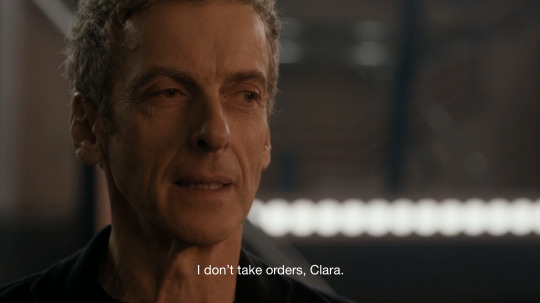

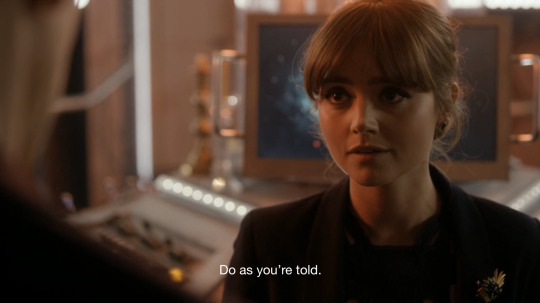













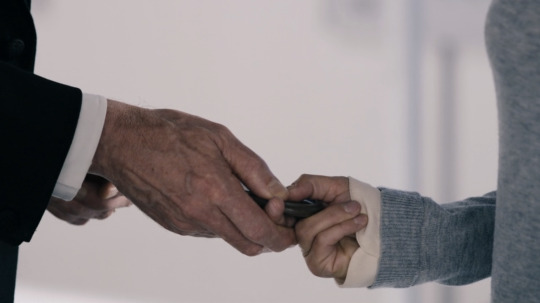

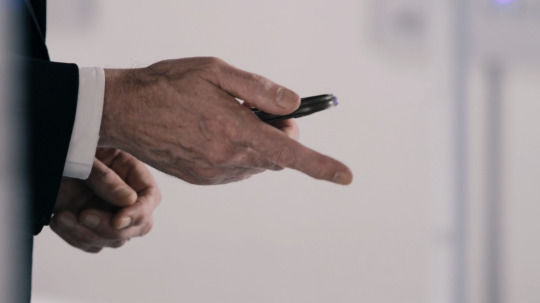
i'm your man by mitski / clara and the doctor
#doctor who#clara oswald#twelfth doctor#twelveclara#whouffaldi#clara + dr#dw#character dynamics that rewire your brain.#Do u see my vision. it's much clearer in my head#**
1K notes
·
View notes
Photo

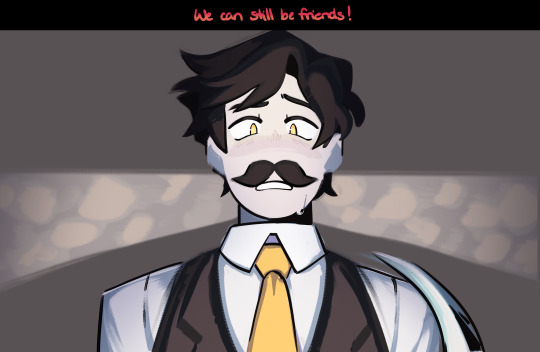
seeing all the throwback art gave me the motivation to redraw my first post here from 2021... not linking the old one since it’s very bad but if you know you know LMAO
4K notes
·
View notes
Text




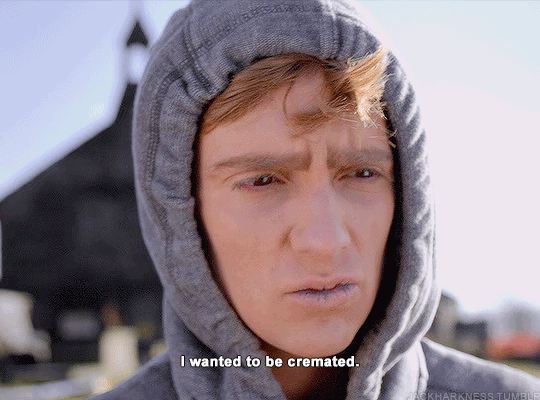
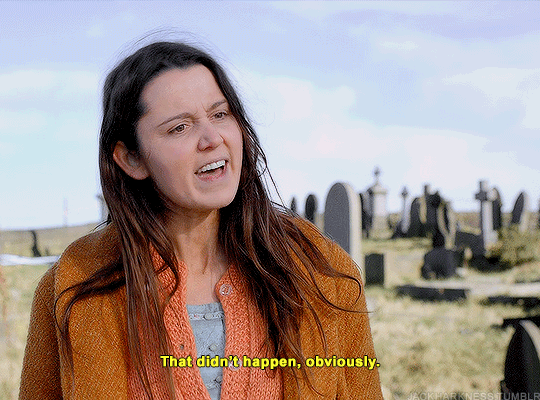


IN THE FLESH (2013-2014) - 1.02
#in the flesh#inthefleshedit#kieren walker#amy dyer#usersource#tvedit#smallscreensource#televisiongifs#filmtvcentral#cinematv#cinemapix#tvarchive#myedit#moments that rewire your brain permanently
485 notes
·
View notes
Text
what if i was a type of fungus that planted itself into your brain in a kind of symbiotic relationship where i load you up with aphrodisiacs putting you in a permanent heat and feed off of you cumming. would you still love me
293 notes
·
View notes
Text
nothing brings me more joy than seeing some innocent soul experience ofmd for the first time, not knowing that the trajectory of their whole life is about to be changed. i see people watching before 1x09 and being like “am i crazy or is there mad chemistry between the two leads? 🤔” oh my love. my dear sweet angel pie. your nuts are about to be huffed clean off
#what i wouldn’t give to go back in time and experience it for the first time#in the spirit of this post#tell me about how you reacted when you watched the show for the first time#tell me about the moment your brain rewired#i looooove reading people’s experiences with the show#ofmd#our flag means death
238 notes
·
View notes
Text








ANNA TORV as Olivia Dunham (Fringe) | 1.17 Bad Dreams | Part 2 [1]
#Anna Torv#Olivia Dunham#fringeedit#perfect episode is perfect#tv moments that rewire your brain#aka the entirety of Bad Dreams#1x17 Bad Dreams#fringe#gifs*#olivia gifs*
200 notes
·
View notes
Text
I love how quickly and deeply I can fall in love.
I love how my love persists.
That's how I fell in love with you.
It was effortless.
I love how I chose to fall in love with you every day, despite everything.
But I forgot to love myself.
It's so beautiful the way I love but I can make it better.
Now I'm going to love myself first even if I'm falling in love with you concurrently.
I'm going to work on the relationship that needs the most loving and nurturing of them all.
Which means loving you just as hard while discovering ways to love myself even harder.
1 note
·
View note
Text

the gift of more time
#because it’s october#and october is for shinhamu#(is that their main shipname i’m new here LOL)#persona 3#persona 3 portable#p3p#p3p femc#kotone shiomi#minako arisato#shinjiro aragaki#foolmoon#my art#before playing p3p#i had been spoiled for what happens but october fourth?? shinjiro and femc’s relationship???#fucking heartwrenching#rewired my brain permanently#it just means a lot to me that#as brief as your time is with shinjiro#and even regardless of him surviving#he was given this little pocket of time with kotone/minako to be Happy#i have a lot of thoughts about them LOL#spoilers
939 notes
·
View notes
Text

did I make fanart of that one sonic meme? yes. but consider…I think of it constantly and need the reminder on my wall 🧐
#never trust how you feel about your life past 9pm#meme#clip studio paint#sonic#super sonic#honestly tho this meme rewired my brain and I so appreciate it#fanart
785 notes
·
View notes
Text
shoutout to indie games that forever rewire your brain chemistry
#im talking about hollow knight and rain world but feel free to tell me about your own brain rewiring guys#hk#hollow knight#rw#rain world#lev.txt
389 notes
·
View notes
Text
What if a villainess fell in love with a girl who was also sort of her, and who she also sort of was as well? What if they never had a conversation, but everything they did was for each other? What if her name also meant "the world" and when the villainess says she's saving the world she ALWAYS means the girl? What if the girl's name became holy, and "Because it's what she would have wanted" became a litany, a prayer never spoken but engraved into every act of kindness? What if the villainess killed one god and then another and it didn't matter because none of them were her god?
Fellas, is it gay to manipulate things so that a man will fall in love with you because you think your god, your world, could find happiness with him once she takes back control of your body? Is it gay to see HER in every moment of romance he thinks is budding between you?
Anyway, everyone should go check out "The One Within the Villainess" everything it does is insane and I'm losing my mind.
#Akuyaku Reijou no Naka no Hito#The One Within The Villainess#fair warning the story I linked is not complete#but there's a lot already translated and certainly enough to fundamentally rewire your brain chemistry#shoutout to the fan translators
99 notes
·
View notes
Text
am i the only one who was not the same after this scene

like you give me shirtless teruko and expect me to be SANE?!?!?!?!
#this literally rewired my brain chemistry#i am not looking respectfully in the slightest in fact i am DROOLING VIOLENTLY#double whammy with giving us a pretty side profile of hu#drdtdev have mercy my tiny bi heart can't take this#drdt#danganronpa despair time#despair time#teruko tawaki#hu jing#drdt aka the fangan with the finest characters you will ever see in your goddamn life
117 notes
·
View notes